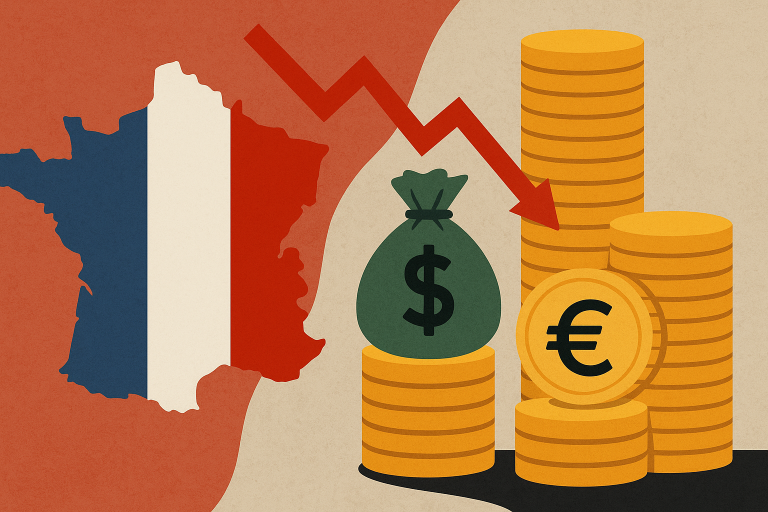France is confronting one of its biggest fiscal challenges in years, with Prime Minister Sebastien Lecornu under pressure to balance the euro area’s largest deficit while addressing mounting demands for tax justice.
At the centre of the debate is whether the nation’s wealthiest citizens and biggest companies should pay more to restore public finances.
Political groups from the left, the far right, and even centrist allies are pushing for new measures that could reshape France’s tax landscape.
The discussion has triggered nationwide protests, reignited memories of past wealth taxes, and unsettled the country’s richest families and businesses.
Political stakes over the 2026 budget
The 2026 budget, due in October, is forcing Lecornu to secure parliamentary support while avoiding a no-confidence vote.
Both the Socialist Party and Marine Le Pen’s National Rally have opposed previous spending cuts and are insisting on wealth-focused taxation as a condition for cooperation.
Without their abstention, Lecornu risks becoming the fifth prime minister in less than two years to lose his post, weakening President Emmanuel Macron’s authority.
Macron’s pro-business policies have delivered lower unemployment and higher investment, but also left him branded as the “president of the rich,” a label that complicates any attempt to resist fresh levies on the wealthy.
Proposals on wealth taxation
Several options are being debated. The Socialist Party backs a proposal inspired by economist Gabriel Zucman, which would impose a 2% levy on fortunes above €100 million.
Around 1,800 ultra-wealthy residents could be affected, including LVMH founder Bernard Arnault, who has argued that such a move would damage France’s economy.
The National Rally has suggested a less sweeping “tax on financial fortune,” designed to exclude one main residence, business assets, and most investments in small and medium-sized enterprises.
Independent lawmakers have also proposed reviving scrapped levies on holding companies and revising inheritance tax breaks known as Dutreil rules, citing abuse by wealthy families.
Public opinion and business resistance
Public support for higher taxes on the wealthy is overwhelming.
An Ifop poll in September found that 85% of French citizens want the richest individuals and big companies to shoulder more of the budget repair.
This includes 92% of voters who back Macron’s own centrist party.
The momentum has driven protests across Paris and other cities, where demonstrators have targeted companies like CMA CGM SA, owned by billionaire Rodolphe Saadé.
Business groups, however, have warned that additional taxation risks driving wealth abroad, as seen under previous governments, including Francois Hollande’s short-lived 75% supertax.
Concerns also centre on competitiveness, with calls for fiscal reform to be balanced with efficiency improvements in public spending.
Historical context of French wealth taxes
France has a long history of experimenting with wealth taxation.
The Impôt sur les Grandes Fortunes was first introduced under Socialist president Francois Mitterrand, applying to assets worth more than 3 million francs.
Over four decades, the tax was repeatedly scrapped, reinstated, and modified until Macron narrowed it in 2017 to cover only property.
The Zucman tax proposal has revived comparisons with this earlier levy, while also aligning with France’s broader role in international debates about a global billionaire tax.
For now, Lecornu has ruled out reviving the old ISF, but the government faces growing pressure to respond to a shifting public mood and worsening fiscal conditions.
The post France’s richest face higher tax calls as deficit widens appeared first on Invezz

